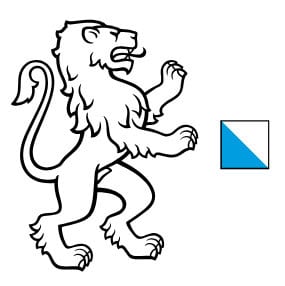Executive Coaching for Lawyers, Consultants, and Other Professional Service Providers
Trapped in the cycle of stress and competition?
Lawyers and other professionals often feel overwhelmed by relentless demands, struggling to achieve work-life balance amidst long hours and high-pressure environments. The constant expectation to be available and fierce competition leave little room for personal fulfillment, leading to burnout, dissatisfaction, and a feeling of being trapped.
Promotions can become sources of stress, and without proper support, navigating your career successfully seems impossible. The lack of diversity and inclusion in professional settings further complicates the path to thriving.
We CAN rise above the demands of today’s professional services work culture!
It’s time to start:
Regaining your sense of control, purpose, and deliberate direction
Making time for what’s most important while still attending to the urgent and time-sensitive
Nurturing relationships and interests outside of work
Achieving a sense of peace and groundedness by aligning your time and energy with your values
Let me help you craft a life of purpose and equilibrium, where we translate your overarching priorities into daily practices that align with your values.
Ready to Transform Your Career and Life?
As your coach, my primary goal is to create a space where you can slow down, think deeply, and articulate your true desires. Together, we will identify what stands in your way, determine who you need to be to live the life you want, and outline the actions required to realize your vision.
What You Can Expect
Expertise in Work-Life Balance and Gender Issues
With over 20 years of research on work-life balance and women’s leadership, I bring a deep understanding of the challenges faced by professionals today.
My expertise includes:
Managing high work demands while staying meaningfully involved in other aspects of life
Personalized Approach
Every client is unique, and so are their circumstances. I tailor my coaching to fit your specific needs, helping you find the strength and resources within yourself to take decisive steps toward your goals. Our sessions will help you organize your thinking, make profound discoveries, see new possibilities, and take action.
Support for Women in Leadership
I am particularly passionate about helping women stay in the leadership pipeline, especially as they navigate the complexities of motherhood. My coaching offers evidence-based strategies to overcome gender-based obstacles, create meaning, set boundaries, and accomplish your goals.
The Coaching Process
Deep Thinking and Reflection
Action-Oriented Strategies
Empowerment and Growth
My coaching is designed to empower you to discover new possibilities and take control of your career and life. You will gain clarity, confidence, and the tools needed to thrive in a demanding environment.
Harness My Proven Tools In Your Coaching Journey

Competitive Advantage Accelerator
Positive Intelligence Assessment
Leadership Practices Inventory (LPI)
MBTI Assessment
Gallup Strengths
DISC Assessment
Why Choose me?
Extensive Research Background
With a career dedicated to studying the dynamics of work-life balance, gender issues, and approaches to work in professional service firms, I bring a wealth of knowledge to our coaching sessions. My research provides a strong foundation for understanding the unique challenges faced by professionals and offering practical solutions.
Proven Success
My clients consistently find the strength and resources within themselves to make significant progress toward their goals. They leave our sessions feeling empowered, organized, and ready to take decisive action.
Commitment to Your Success
I am deeply committed to helping you succeed. Whether you’re navigating the demands of a legal career, aspiring to leadership, or seeking balance in your life, I am here to support you every step of the way.
Common Coaching Q’s
Let’s answer some of your most frequently asked questions.
I’ve never had a coach before. What happens in a coaching session? What’s it like to have a coach?
We talk, think, feel, and engage our bodies to increase your awareness, deepen reflection, and change what you do and how you think of yourself. Coaching is best understood by experiencing it – so booking a free consult call is the best way to understand whether my approach is something you’d enjoy and benefit from.
How much does coaching cost?
The financial investment you’ll make will be based on the depth and length of involvement you decide is right for you. Schedule a call to discuss your goals, which will allow me to give you a good sense of the financial investment that might be required.
How long is your typical coaching engagement?
This really varies! When we start working together, we set goals and assess how long it might take to reach them – and how long coaching support would be useful.
We regularly check on our progress to ensure you meet the goals. When we get to the end of that period, many clients set new goals and continue to work with me or take a break and return when a new set of challenges or opportunities that come their way. I’ve worked with some clients on and off for many years.
That said, I’ve also worked with many clients on engagements that were pre-determined in length: someone might want to engage me as their coach for 6 months, for example, and in such cases, we consider what goals are realistic to set for that time frame. In short, schedule a call with me, and things will be much clearer after that!
I am pretty good at setting goals or creating a vision, but I don’t execute. Can you help with that?
Yes! One of the most common ways I support my clients is by helping them align their day-to-day practices and actions with their longer-term goals, life’s purpose, and overall vision. I use several very effective approaches to accomplish this and, of course, provide accountability as well. We tackle this issue from two sides: first, we make sure that the goals or vision truly capture what you want—and not what you think you should want.
We stay realistic and consider your circumstances and responsibilities—so no pipe dreams here—but we want to articulate what you long for.
And second, once that’s clear and compelling, we design practices that help you work toward those goals consistently and reliably. These practices are based on what’s been tested and proven but are tailored to you and your circumstances and tendencies.
Is it better to hire an executive coach or work with a therapist?
This depends on your needs and desires. There are important differences between coaching and psychotherapy, and you may be the best judge of which one will serve you better at this time. Below is some information that may help you decide.
According to the International Coaching Federation (ICF):
“The main distinctions between coaching and psychotherapy are based on focus, purpose and population. Coaching focuses on visioning, success, the present, and moving into the future.
Therapy emphasizes psychopathology, emotions, and the past in order to understand the present. The purpose of coaching is frequently about performance improvement, learning, or development in some area of life. At the same time, therapy often dives into deep-seated emotional issues to work on personal healing or trauma recovery. Coaching tends to work with well-functioning individuals, whereas therapy work tends to be for individuals with some level of dysfunction or disorder. Therapy works more with developing skills for managing emotions or past issues than coaching.
As an analogy, a coach is like an athletic trainer, while a therapist is like a medical doctor specializing in sports medicine. Both draw from a shared body of knowledge that includes anatomy, kinesiology, nutrition, and the like. The trainer works from the assumption that the athlete is essentially sound in body and is focused on improving fitness and performance. The trainer will refer the athlete to the team doctor if there is reason to believe he or she has an injury.
Similarly, coaches and therapists work with the same material but with different skill sets and to different ends. A coach may explore the past, family life, or emotions of their client in the service of understanding the client’s origin stories being told about the present and future.” (from Referring a Client to Therapy: A Set of Guidelines, by International Coaching Federation)
It is important for you to know that, as a coach, I do not diagnose or offer treatment. If you need help that is outside my qualifications, experience, or contract, I will refer you to a mental health professional.


































